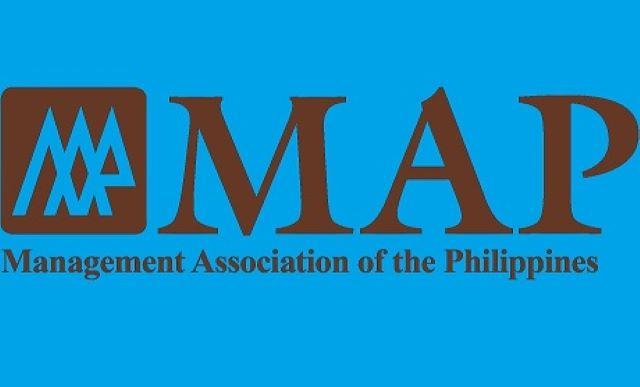Gov't urged to form Economic Security Council in response to Trump's tariffs

The Management Association of the Philippines (MAP) on Friday expressed concern on the potential impact of US President Donald Trump’s fresh wave of reciprocal tariffs across over 100 countries, including the Philippines which was slapped with a 17% levy on its goods entering America.
In a statement, MAP urged the Department of Trade and Industry (DTI), the Department of Foreign Affairs (DFA), the National Security Council, the Department of Finance (DOF), the National Economic and Development Authority (NEDA), the Philippine Economic Zone Authority (PEZA), the Anti-Red Tape Authority (ARTA) and the Department of Labor and Employment (DOLE) “to consider the impact of this new global order on the Philippines’ economic security.”
With this, the business group recommended the formation of an Economic Security Council which would be under the Office of the President “as what many countries have already done in anticipation of these developments.”
The proposed council would be composed of the DTI, DFA, NSC, DOF, NEDA, PEZA, ARTA, and DOLE, “together with appropriate private sector and industry representatives.”
“Many foreign governments have acknowledged the value and effectiveness of having their respective private sector and industry as key partners in addressing these new challenges,” MAP said.
The group added that the council should be headed by and composed of individuals with extensive diplomatic, economic and industry expertise.
“The Council’s main tasks would be to compile data and information, analyze their correlation and impact on our economy, and recommend risk-mitigating measures for the affected industries. It can also identify opportunities and alternative markets that these developments will provide for our own economy and businesses,” MAP said.
“It can provide important scenario modelling analysis which will help the President and the Executive Branch in developing strategies, and in negotiations with other governments in dealing with the new realities of international trade,” it added.
A poster on Trump's Truth Social page showed that the Philippines' goods entering America will be slapped with a 17% tariff—still a "discounted" reciprocal tariff compared to the 34% rate that Manila charges against goods coming from the US.
However, an annex attached to Trump's statement posted on the White House's website shows that the reciprocal tariff rate for the Philippines would be at 18%.
The Philippines' tariff rate would be higher than the 10% baseline tariff on all imports to the US
Nevertheless, the reciprocal tariff rate for the Philippines would still be lower compared to its Southeast Asian neighbors with Brunei at 24%, Cambodia at 49%, Indonesia at 32%, Malaysia at 24%, Myanmar at 45%, Vietnam at 46%; with only Singapore to be charged the baseline 10% rate.
“This is a reality that will spread across many countries and will clearly have varied economic impact to each nation,” MAP said.
“While our country at this time is seen as not as negatively affected as others, with the global economy being an integrated ecosystem, we cannot discount the possibility that as other countries are affected, it may prosper into a contagion that will eventually affect us. We firmly believe that recent developments require a different paradigm and approach,” it added.
In a separate statement, National Economic and Development Authority Secretary Arsenio Balisacan said that the government will be vigilant regarding the potential implications of the recently issued Executive Order by United States President Donald Trump on tariff increases.
“With or without the trade policy changes in the US, maintaining sound macroeconomic fundamentals, improving the ease of doing business, maximizing existing trade agreements, and forging new partnerships are still the most important strategies we can pursue to ensure that we protect the purchasing power of Filipinos and promote rapid, sustained, and inclusive growth,” Balisacan said.
Special Assistant to the President for Investment and Economic Affairs Secretary Frederick Go is seeing opportunities for the Philippines to take advantage of its relatively lower tariff compared to its neighbors.
“So, from my perspective, I think this opens up a lot of opportunities for companies that are based in the countries with higher tariffs to look seriously at investing in the Philippines to set up manufacturing facilities in the Philippines to take advantage of our relatively much lower tariff," Go said, adding that, "this is an opportunity to attract investments because we're a good ally.”
Finance Secretary Ralph Recto, likewise, said the country is looking to woo foreign investors into expanding or relocating their businesses amid the possible supply chain disruptions to be brought about by the reciprocal tariffs announced by Trump.
“Nevertheless, the CREATE MORE Act will strengthen our ability to attract investors looking to expand or relocate to the Philippines, given the relatively lower tariffs imposed on our exports to the United States. We are also actively pursuing more free trade agreements with our global partners,” Recto said.
Trade Secretary Ma. Cristina Roque also said the still sees an opportunity to deepen Manila's strategic partnership with Washington D.C., citing the bilateral trade relations between the two countries with "about 10% of our total trade involving the US."
"We are committed to working closely with the United States to uphold these principles and ensure a mutually beneficial trade environment," Roque said. — RSJ, GMA Integrated News

Need a wellness break? Sign up for The Boost!
Stay up-to-date with the latest health and wellness reads.
Please enter a valid email address
Your email is safe with us






